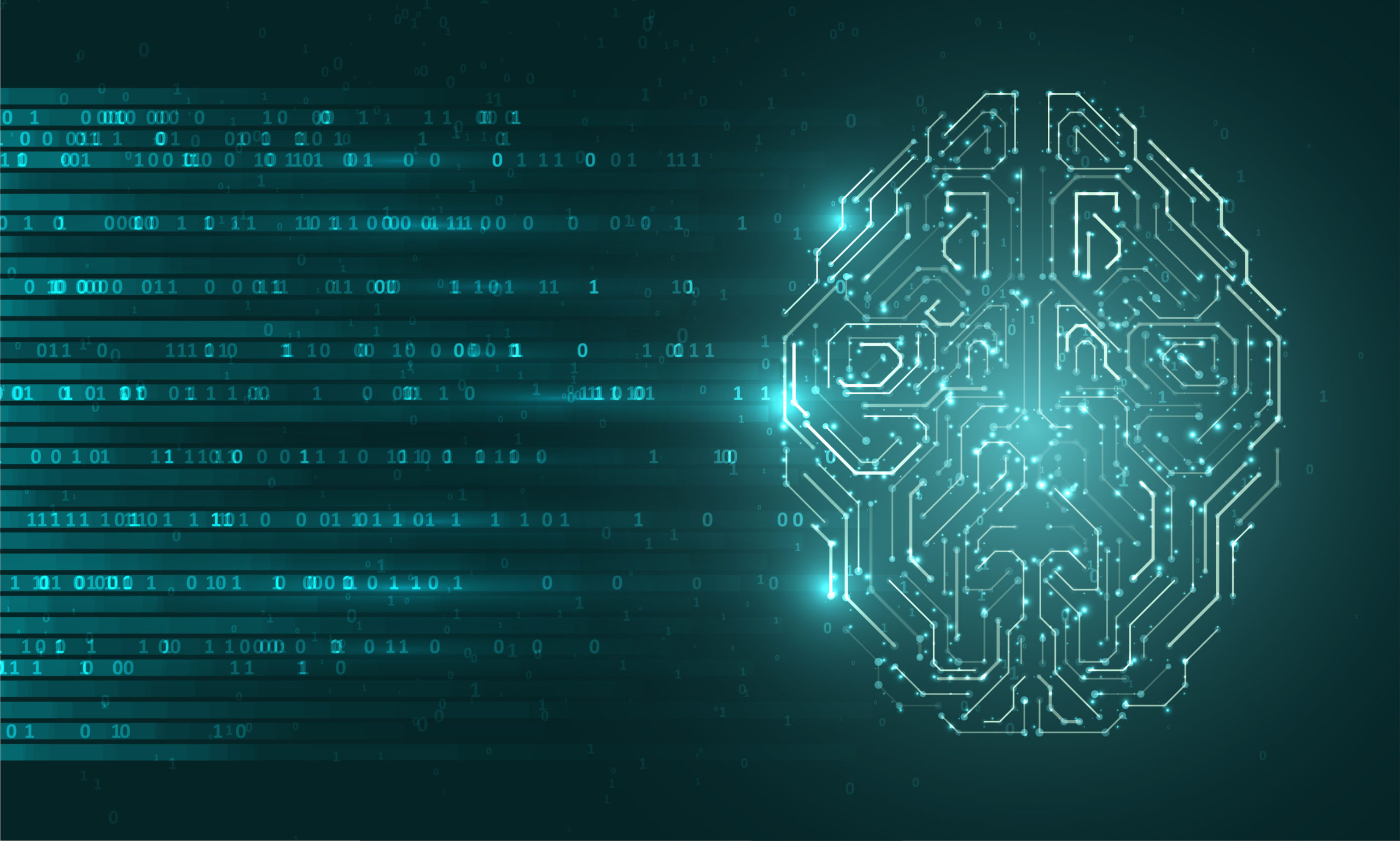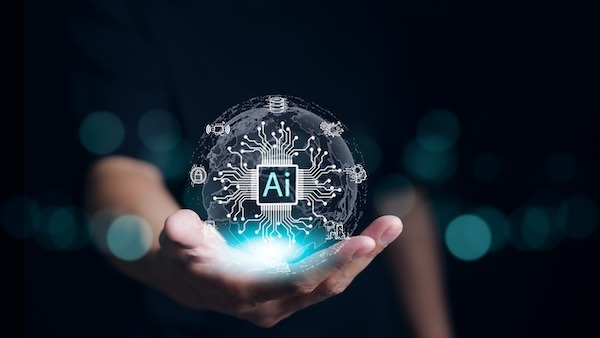6 Surprising Industries Ripe for Disruption by Artificial Intelligence
Artificial intelligence (AI) can simplify the lives of workers in myriad fields by performing tasks that are typically done by humans in a fraction of the time cost. A 2019 survey by Gartner shows that 37% of organizations have implemented some form of AI, skyrocketing its investment by 270% in the past four years. Nevertheless, industries have room to grow when it comes to adopting and innovating cloud-based operations through machine learning and other AI-powered technologies.
1. Manufacturing
Automation alleviates repetitive or even dangerous tasks for manufacturing workers, while effectively streamlining operations for the businesses running such facilities. These discoveries, however, are not new, and instead can be seen throughout much of the 20th century. Notably, in 1951, George Devol conceived of the first industrial robot — the Unimate — a mechanical arm capable of moving an object from point A to point B. Otherwise known as the Programmed Article Transfer device, this mechanical arm came to fruition in the 1960s after Joseph Engelberger pitched the product as one that prioritized workers’ safety.
Today, AI not only performs manufacturing tasks like assembling goods, but also helps conduct quality control, facilitate predictive maintenance, and reduce material waste, among other beneficial uses.
Despite the advantages surrounding the use of AI in manufacturing, one significant downside remains. Oxford Economics predicts that up to 20 million manufacturing jobs worldwide will be lost to robots by 2030. AI’s ability to cause job displacement makes the recognition of digital disruption important for industry executives and leaders to understand. With machines performing typically human-powered tasks at half the cost and twice the speed, companies may be more prone to side with the machines. Between 2000 and 2010, siding with AI was all too familiar for manufacturing workers as the industry plummeted by a third, causing nearly 6 million Americans to lose their jobs.
2. Education
While private companies, such as IBM’s Watson Education, have created AI systems to personalize learning strategies and improve students’ academic performance, how educators leverage these tools is entirely up to them. One teacher has begun implementing AI in the classroom to auto-grade students’ schoolwork and provide insight into where they need help. School administrators are utilizing AI through virtual assistants; this technology can announce teacher absences, which classrooms need substitutes, and what forms need to be signed.
Although AI may be useful in the classroom, internet accessibility at home remains an obstacle for students across the U.S. Nearly 15% of U.S. households with school-aged children lack access to high-speed internet, creating a “homework gap” between those with access and those without. Furthermore, AI may only be beneficial as a supplement, and not as a replacement, to real one-on-one teaching and mentoring.
There are still far more ways to utilize AI in the education sector before it truly revolutionizes the ways in which students learn. Policies regarding its application and accessibility must be prioritized.
3. Hiring and Employee Development
The hiring process is one more area of focus ripe for disruption by AI. The technology is essentially transforming the way in which companies recruit. With its ability to efficiently filter through applications, choose the best applicant for a position, and even seek out potential applicants, AI is providing a plethora of advantages to companies — especially their human resource departments.
A recent survey conducted by IBM found that 50% of human resource executives understand cognitive computing has the ability to transform HR operations. Despite implementation, many businesses have yet to scale AI’s usability; a McKinsey report finds that only 21% of respondents embedded AI into multiple business units or features. As such, there is still much to be done to successfully incorporate AI into businesses and fully revamp companies’ hiring process.
Similarly, AI can be used to help develop existing employees’ talents. By pinpointing their strengths and weaknesses, AI can effectively inform managers on what their employees could improve, as well as provide personalized training programs that focus on their missing skills.
4. Healthcare
The potential uses for AI in healthcare are seemingly endless. With myriad departments inside healthcare facilities, advanced technology could provide workers with the collectivity and consistency that they need to perform their jobs well. Just about every department inside healthcare facilities could benefit from AI.
Clinical stage, AI-powered biotechnology company BERG utilizes the technology to forward the discovery and development of breakthrough medicines. In a 2018 Neuroscience conference, the company revealed their findings on treating Parkinson’s disease, and how they used AI to discover a correlation between chemicals in the human body that were previously unknown.
Diagnosing and treating patients, helping senior citizens live fuller and healthier lives, and managing massive collections of patient records are just a few examples of how AI can help this sector. Despite all the advantages of AI in the healthcare sector, real challenges exist in its implementation. Electronic medical records, for instance, have not been as successful as originally thought to be, primarily due to high levels of data entry among healthcare professionals. Interoperability must remain at the forefront of developers’ minds going forward with the industry’s growth.
5. Business Intelligence
AI offers businesses the opportunity to replace old tools, become more innovative, and ultimately change the ways in which companies use their data, by means of automation, data analytics, machine learning, and natural language processing. Retrofitting businesses’ intelligence systems with this technology could help find important data points or patterns that were previously unknown.
The whole purpose of business intelligence systems is to provide companies with insights that aid in decision-making. Big data analytics effectively does this; companies using the product are 5 times more likely to make faster decisions. Banks, for instance, are utilizing AI-driven business intelligence practices to outperform competitors and receive meaningful information in ways that were previously unfeasible.
Data may only be one way to improve business efficiency, but it is an excellent starting point for any company or department.
6. Customer Service
Providing product recommendations, personalizing advertising, and handling simple customer queries are just a few examples of how AI can be used to augment the customer experience. Companies can implement these practices through the use of chatbots, virtual assistants, and other AI-powered technologies.
Chatbots, for instance, provide real-time solutions to customers without the need for human interference. This software application may be used for answering questions, troubleshooting, or interacting with potential customers. It’s 24/7 availability makes it possible for customers to receive immediate answers to some of their most commonly asked questions. For more complex questions, chatbots can direct customers to the proper department.
Personalized advertising and product recommendations are two other ways AI is revolutionizing customer service. AI’s ability to amalgamate individual customer data provides valuable insight on personal preference, as well as geographical location, weather, and even events nearby — each of which may be used to tailor a site’s content to their unique visitor needs. Customer service, as a result, is one field that would highly benefit from disruptive innovation.
The industries outlined above must all be primed for a digital transformation if they are to truly succeed in harnessing AI’s capabilities.

;)


